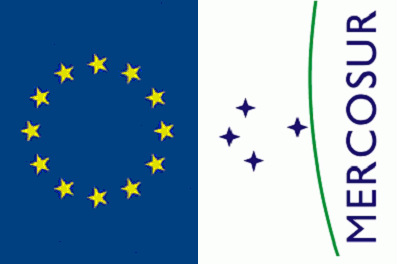 Yesterday, I was nominated by the Program on Information Justice and Intellectual Property for membership on the Industry Trade Advisory Committees dealing with Chemicals, Pharmaceuticals, Health/Science Products and Services (ITAC 3), Intellectual Property Rights (ITAC 15) and the Public Interest Trade Advisory Committee (PITAC). I was swiftly rejected by the coordinator of the ITACs because “Academic institutions, unless trading in educational services, do not qualify for ITAC membership.”
Yesterday, I was nominated by the Program on Information Justice and Intellectual Property for membership on the Industry Trade Advisory Committees dealing with Chemicals, Pharmaceuticals, Health/Science Products and Services (ITAC 3), Intellectual Property Rights (ITAC 15) and the Public Interest Trade Advisory Committee (PITAC). I was swiftly rejected by the coordinator of the ITACs because “Academic institutions, unless trading in educational services, do not qualify for ITAC membership.”
It is difficult to rectify this decision with the administration’s new rhetoric on promoting “balance” in the ITACs and the broader trade advisory system. Just last month Ambassador Froman reaffirmed the Administration’s commitment “to increased inclusiveness in trade negotiations,” work “to diversify membership in the advisory system that Congress established to provide official recommendations on trade policy,” and intent “to expand beyond that system” with new efforts to include public interest representation in the trade advising process. Froman mentioned efforts to diversify the ITACS with academics specifically:
The Obama Administration has expanded representation on advisory committees to include more voices from academia, NGOs and others with varying views. . .
[W]e and the Commerce Department are in the process of re-chartering our advisory committees and, as we put out the Federal Register notice, we invite representatives from all relevant constituencies to apply.
The door is open and we are interested in further diversifying their membership.
He also invited academics to join the newly constituted Public Interest Trade Advisory Committee:
I’m pleased to announce that we are upgrading our advisory system to provide a new forum for experts on issues like public health, development and consumer safety.
A new Public Interest Trade Advisory Committee (PITAC) will join the Labor Advisory Committee and the Trade and Environment Policy Advisory Committees to provide a cross-cutting platform for input in the negotiations.
We are calling on NGOs, academics, and other public interest groups to submit their candidates to be founding members of the PITAC.
Justifications for why academics should be permitted in the Advisory Committee system were sent to USTR yesterday by David Levine, Margot Kaminski and myself. Interestingly, the Federal Register Notice appeared to be open to Froman’s broader view of ITAC eligibility, noting:
Historically, the Secretary and the USTR have appointed a representative of the public health or health care community to each of ITACs 3 and 15, and an environmental representative to each of ITACs 3 and 7.The Secretary and the USTR will continue to consider nominations for representatives of such viewpoints to those ITACs.
It is difficult to square the statements in the Federal Register and by Forman with the formalistic reading of ITAC eligibility requirements described by the Director of the Industry Trade Advisory Center below. Nor is such reading required by statute. The Trade Act states that the ITAC system should promote a “balance” of relevant “interests,” as does the Federal Advisory Committee Act. This is the language assumably relied on to appoint token NGOs to other ITACS, and that could be relied upon to promote a real balance of interests, including perspectives by academics, within them.
My application, and the response I received, is included below.
From: Trade Advisory Center – Ingrid Mitchem <advisory_center@ita.doc.gov>, <advisory_center@ita.doc.gov>
Reply-To: <advisory_center@ita.doc.gov>
Date: Wednesday, March 26, 2014 9:42 AM
To: Sean Michael Flynn <sflynn@wcl.american.edu>
Cc: <tenoch@ustr.eop.gov>, Michael Palmedo <mpalmedo@wcl.american.edu>
Subject: Re: Application for PITAC and ITACs
Dear Mr. Flynn:
Thank you for your interest to serve on an Industry Trade Advisory Committee (ITAC). Attached, please find the Federal Register notice on the eligibility requirements and criteria for membership. In order for you to be considered for membership on an ITAC, you will need to obtain a sponsoring U.S. entity that trades internationally; represents members who trade internationally; or represents members who have demonstrated interest in international trade. Membership is carried with the comopany or organization to be represented. Academic institutions, unless trading in educational services, do not qualify for ITAC membership. Also, a secondary criteria is knowledge of trade issues relevant to the work of an ITAC.
After you have had a chance to review the FR notice, and if you have any questions, please let me know at (202) 482-3268.
Sincerely,
Ingrid Mitchem
Director
Industry Trade Advisory Center
U.S. Department of Commerce
Washington, DC 20230
SPONSOR LETTER
Pursuant to the Request for Nominations for the Industry Trade Advisory Committees (ITACs) and the Request for Comments From the Public and Nominations for the Public Interest Trade Advisory Committee published in the Federal Register, the Program on Information Justice and Intellectual Property nominates Sean Flynn, Associate Director and Professorial Lecturer, Program on Information Justice and Intellectual Property to serve on the following Advisory Committees:
(ITAC 3) Chemicals, Pharmaceuticals, Health/Science Products and Services
(ITAC 15) Intellectual Property Rights
PITAC – Public Interest Trade Advisory Committee
A. Name, title, affiliation, and relevant contact information of the individual requesting consideration
Sean Michael Fill Flynn
Associate Director and Professorial Lecturer
Program on Information Justice and Intellectual Property
American University Washington College of Law
202-274-4157
sflynn@wcl.american.edu
B. Statement regarding the nominee’s international trade expertise and qualifications to represent the relevant industry sector.
Sean Flynn teaches and conducts research on the intersection of intellectual property, trade law, and human rights and is the Associate Director of the Program on Information Justice and Intellectual Property (PIJIP). At PIJIP, Professor Flynn designs and manages a wide variety of research projects that promote public interests in intellectual property and information law. He has served as counsel for numerous organizations with an interest in intellectual property issues in trade negotiations, including the Consumer Project on Technology (aka Knowledge Ecology International), the Forum on Democracy and Trade and the National Legislative Association on Prescription Drug Prices. Professor Flynn’s research focuses on the public interest implications of international intellectual property law, and he has written specifically on the analysis of provisions in free trade and other regional agreements. See CV attached.
Some of the particular issues in free trade agreements on which Sean Flynn could provide expertise and public interest analysis include:
- General Provisions: Relation to Multilateral Agreements
- Exclusive Reproduction Rights for Temporary Electronic Copies
- Exhaustion of Rights and Parallel Importation
- Copyright Term Extensions
- Limitations and Exceptions and the Promotion of “Balance”
- Technological Protection Measures
- Scope of Patentability
- Exclusions from Patentability
- Patent Term Extensions
- Revocation and Oppositions
- Industrial Applicability/Utility
- Data Exclusivity
- “Access Windows” and Special and Differential Treatment for Developing Countries
- Patent/Registration Linkage
- Doha Declaration on TRIPS and Public Health
- General Enforcement Obligations
- Injunctions and Border Suspensions
- Damages
- Criminal Offenses: “Commercial Scale”
- Internet Service Provider Liability
- Pharmaceutical Reimbursement and “Healthcare Transparency”
C. Applicant’s personal CV (enclosed)
D. Organization and eligibility
The applicant and PIJIP meet all of the individual and organizational eligibility requirements for Committee membership.
The Program on Information Justice and Intellectual Property (PIJIP) is the nationally recognized intellectual property and information law research and academic program of American University Washington College of Law. PIJIP’s areas of work and affiliated projects promote information justice in intellectual property law and policy in the U.S. and abroad.
PIJIP’s project on International Intellectual Property and the Public Interest works with scholars and policy advocates to promote analysis of public interest concerns in international intellectual property law and policy. The Project’s outputs include the Infojustice.org blog and resource site, a working paper series and annual published volume of the American University International Law Review, and the organizing of the annual Global Congress on IP and the Public Interest.
1. Certification as U.S. Entity
PIJIP is a Program of American University Washington College of Law (AUWCL). PIJIP is a U.S. entity and is not more than ten percent foreign-owned.
2. Identification of Interests Represented; Not Registered Lobbyist
Neither PIJIP nor Sean Flynn will participate as a representative of a trade association or attorney or representative of another organization.
Neither PIJIP nor Sean Flynn has any current business arrangements relevant to, and clients of the nominee that may have an interest in, the work of the Committee.
Sean Flynn is not a federally registered lobbyist, and understands that if appointed, will not be allowed to continue to serve as a Committee member if the applicant becomes a federally registered lobbyist.
PIJIP’s financial support is from American University Washington College of Law, private gifts and public foundation grants.





